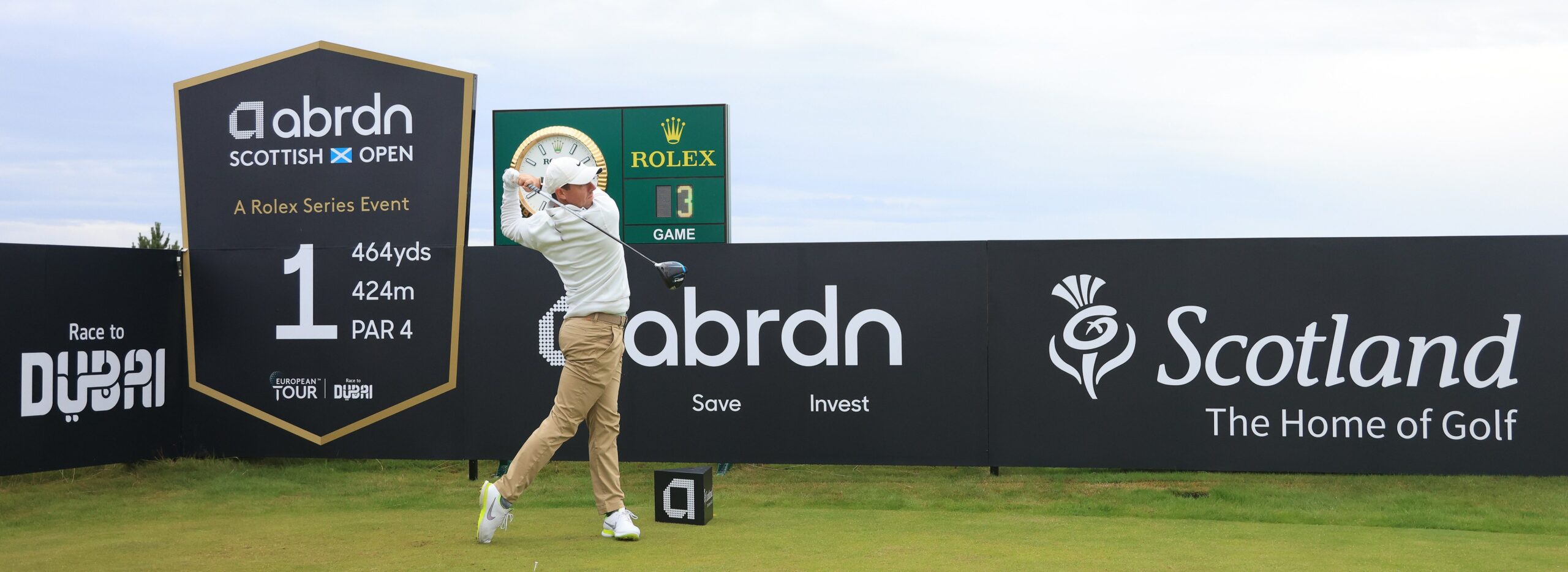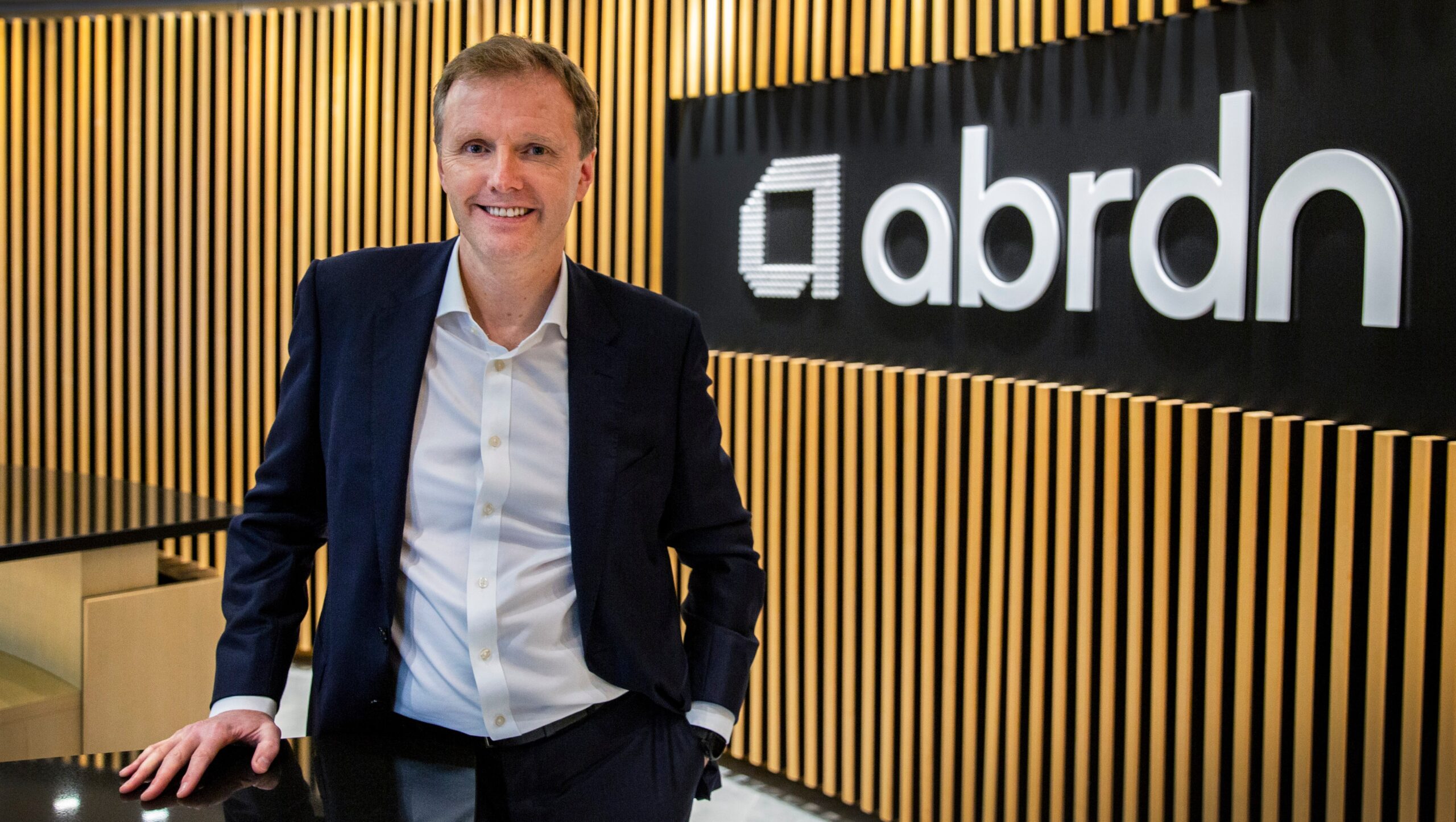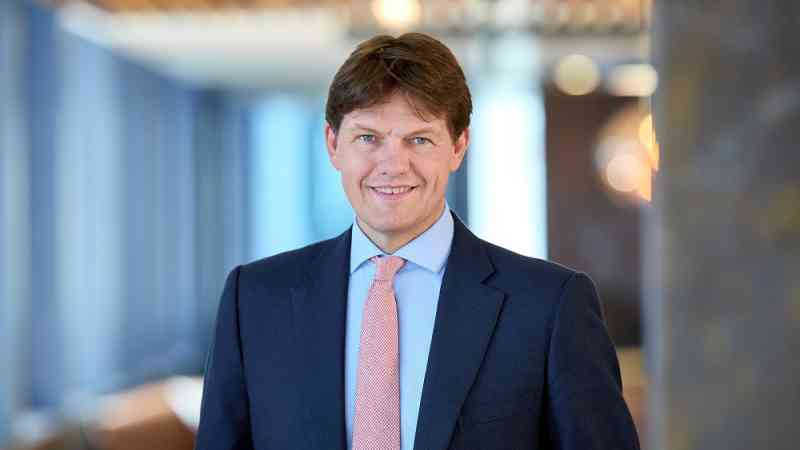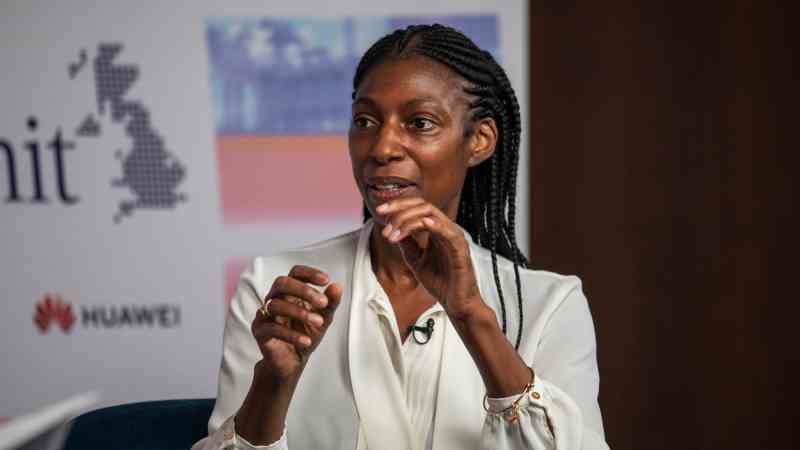Jason Windsor takes on the challenge of reviving Abrdn
When Stephen Bird took charge of what was then called Standard Life Aberdeen in 2020, he promised to turn the fund manager into “a competitor fit for the 21st century”.
Bird called himself a “reset guy”, brought in by Sir Douglas Flint, the chairman, to revive the business after years of client withdrawals and underperformance that followed its creation through the £11 billion merger of Aberdeen Asset Management and Standard Life in 2017. Previously a banker at Citigroup with little experience of fund management, Bird said he brought “fresh eyes. And fresh eyes are valuable.”
Turn the clock forward four years and Abrdn, as the company is now called, has called for a fresh set of eyes once again. Only this time it has turned to an insider in a renewed attempt to turn its fortunes around.
On Tuesday the group confirmed that Jason Windsor, previously its finance chief, would be its next permanent chief executive, replacing Bird, 57, who left abruptly in May. Windsor, 52, is targeting a “step-change in performance” and wants “to build a more efficient, growing business with a culture that sustains long-term success”.
Shareholders will be hoping that he succeeds where Bird, at least in the eyes of some in the City, fell short. The future prospects of what is one of Britain’s biggest money managers, with a history stretching back two centuries, depends on it.
Abrdn can trace its roots to the Life Insurance Company of Scotland, which was set up in Edinburgh in 1825 and was the precursor to Standard Life. The modern group, which shed its insurance business through a deal with Phoenix in 2018, is a FTSE 250 investment house that oversees assets of about £506 billion and focuses on “active” management, which involves picking investments with the aim of outperforming market indices.
It used to be even bigger. The merger of Aberdeen and Standard Life created a company that marshalled £670 billion of assets, making it the country’s largest listed funds house with a market capitalisation big enough to qualify for membership of the FTSE 100. But the rising popularity of cheaper, “passive” players, which merely track indices, and the weak performance of some of its portfolios prompted clients to withdraw billions of pounds from the business, while the loss of a large investment mandate from Lloyds Banking Group further shrunk the group. All this pushed down its share price.

Bird, who became chief executive in September 2020, sought to revamp the company by striking a £1.5 billion deal for Interactive Investor, a DIY investment platform used by retail clients to trade shares and to manage self-invested personal pensions. He also restructured the group into three divisions: its asset management business, an advisor-focused unit and Interactive Investor .
Some investors were concerned that Bird had paid too much for Interactive Investor, with almost a fifth of voting shareholders opposing the takeover at a meeting to approve the deal in 2022. He also failed to stem client outflows, with a net £17.6 billion being withdrawn by clients last year, on top of £37.9 billion pulled in 2022 and £6.2 billion in 2021. An efficiency drive, which included job cuts, similarly fell short, with a plan to improve the group’s cost-income ratio to 70 per cent by the end of last year eventually being shelved. In the end, it reported a ratio of 82 per cent for 2023.
The much-derided rebranding of the company to Abrdn and allegations that Bird could be an aggressive boss, which he denied, created further turbulence. By the time he had stood down, Abrdn’s shares had lost a third of their value, causing the company’s demotion to the FTSE 250. Annual adjusted operating profits, Abrdn’s preferred measure of earnings, slid to £249 million last year from £323 million in 2021.
Now it falls to Windsor to orchestrate a revival. According to Rae Maile, an analyst at Panmure Liberum, a broker: “If in asset management you’re not making enough money, either you’ve got to get the revenues up or you’ve got to get the costs down. Ultimately, the answer is going to end up being a mixture of the two, but the only easy, controllable part to start with is the cost base.
“What Abrdn needs is a radical overhaul. You want to go back to first principles and decide, ‘How much money should it cost us to run this place?’ ”
Windsor is no stranger to the fund management industry. He became Abrdn’s finance chief in October last year having spent 12 years at Aviva, the FTSE 100 insurance and investments group, where one of his roles involved overseeing its vast asset management operations. Before Aviva, he worked for 15 years as an investment banker, advising on Aviva’s abortive £17 billion bid for Prudential in 2006 and the £5 billion takeover of Resolution.
Given his background in insurance, his strategy for Abrdn could involve doing more in this area, including with Phoenix, the FTSE 100 life insurer to which Abrdn supplies asset management services under a partnership. Abrdn is the second biggest shareholder in Phoenix with a stake of more than 10 per cent.

Windsor has been running Abrdn on an interim basis since May and last month he unveiled the company’s half-year results, in which operating profits edged up to £128 million, from £127 million a year earlier. Flows also stabilised, with the group attracting a net £800 million in the six months to the end of June, although its core asset management business and adviser division suffered net withdrawals of £1 billion and £2 billion, respectively.
There has long been speculation that Abrdn could unlock value for its shareholders through a break-up of its business, perhaps by selling its troubled fund management operations to a bigger investment house. Proponents of this idea include David McCann, an analyst at Deutsche Numis, who said after Abrdn’s first-half results that he believed such “radical action” was required ”to realise the significant gap between the market price and the sum-of-the-parts value” of the company.
Windsor appeared to rule out a break-up when he delivered Abrdn’s six-month results when he referred to the group’s three “core” businesses, which include its asset management unit.
He will set out more detail on his plans in the next few months. “I’m allergic to big strategy reveals,” he said. “They tend to ramp up expectations, which you risk failing to meet. I said quite a lot a month ago at the half-year results. I’ll build on it at the third-quarter results and again at the full-year results in February.”
In the meantime, he is pushing ahead with a cost-cutting drive that was announced by Bird in January, which aims to find at least £150 million of savings by the end of next year and involves the loss of about 500 jobs.
“We need to get the profits up,” Windsor said, adding that profits and flows were “obvious performance indicators” for the company. “But I don’t want to get too fixated on flows because you can get flows at low margin.”
His progress in reviving Abrdn will be watched closely in the City. The company “might get bought or broken up by a buyer, but only if it’s clearer that there’s a better business there”, Maile said. “Come what may, you’ve got to make it a better business.”




Post Comment